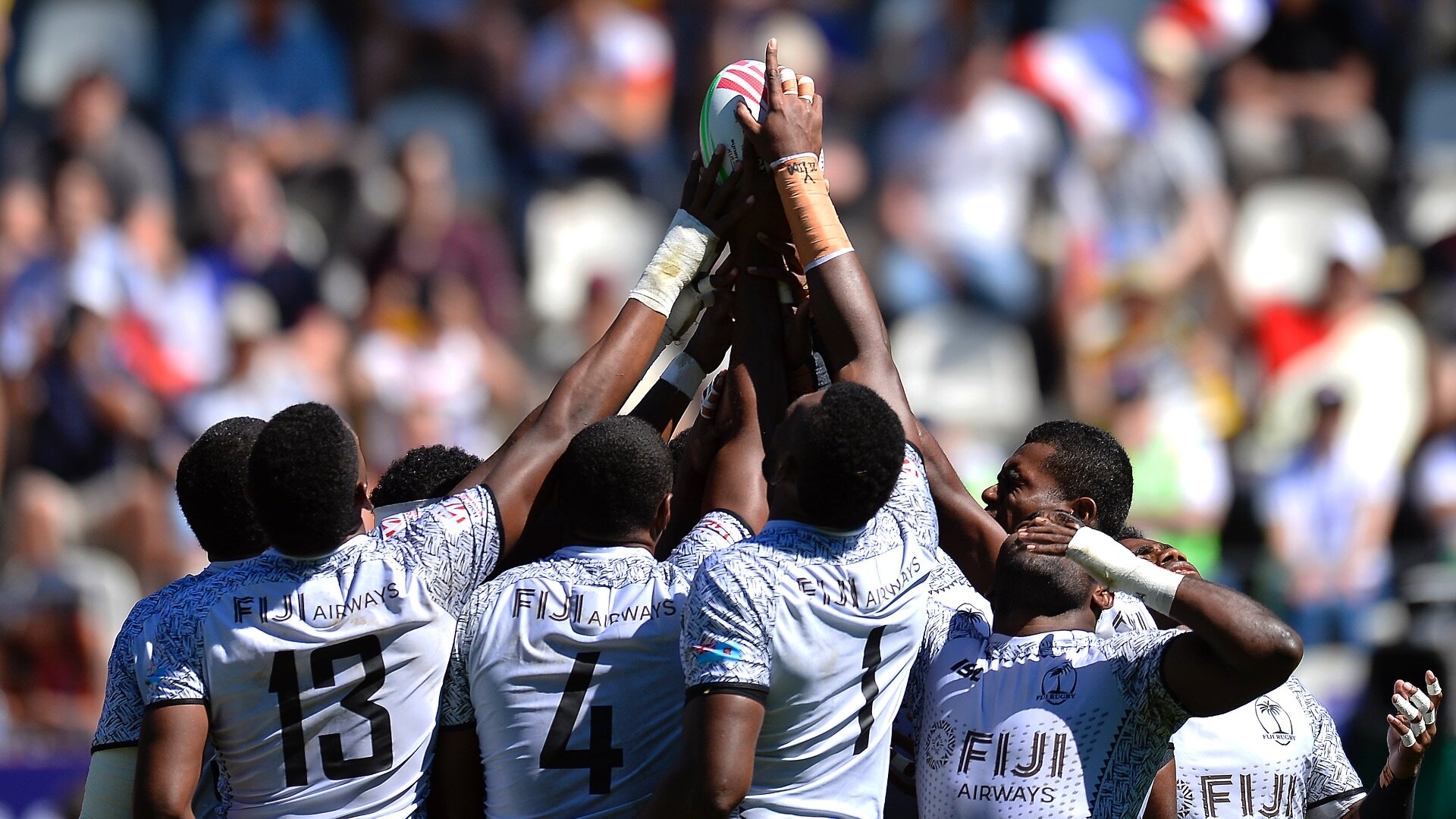Fiji's bid to retain Olympic gold has received a funding boost

Fiji’s bid for another sevens gold medal triumph at the Tokyo Olympics next year has received an Fj$2.1m (£770,000) funding boost from their government to allow head coach Gareth Baber to build on their 2019 HSBC World Rugby Series Sevens title triumph.
The funds – which stem from the annual budget – will also be shared with the women’s sevens, who have yet to qualify for the Olympics. According to the Fiji Times report, it will also help Fiji to improve contracts for the players and management to help ward off raids from European and Japanese clubs.
Baber said: “There is a rise in financial support and the money has come in 14 months before the Olympics. As was shown when Fiji won gold in Rio, it’s a huge strategic thing for the country as a whole.”
The HSBC series-winning sevens squad is currently enjoying a month-long break, with the players ordered by Fiji Rugby Union chief executive John O’Connor not to accept invitations to play 15s rugby during this period.
Memories of that gold medal triumph in Rio in 2016 will be rekindled next week when Bordeaux centre Semi Radradra sponsors a sevens tournament in his name and leads a team made up of star names.
The Fiji Times » 2019/2020 National Budget: Rugby 7s overseas tours allocated $2.1m – this is a big chunk of money for the 7s teams. https://t.co/CHaLHOGN6p
— Ben Ryan (@benjaminryan) June 8, 2019
They will play as the Eiffel Ruggers, as the players are now based in France, and the team includes Radradra, Olympic medallist Josua Tuisova (Toulon), his brother Filipo Nakosi (Castres) and prop Peni Ravai (Bordeaux), who are members of Fiji’s Rugby World Cup training squad preparing for Japan, plus former Wallaby Eto Nabuli.
Baber is committed to broadening the player base for his sevens squad in Fiji, but is also looking to use European talent to defend the Olympic title.
He said: “A lot has been said about European-based players and I will continue to look at them, but there is a reality about the conditioning base of a sevens and 15s player. What I’m blessed with in Fiji is that every player who has ended up playing in Europe has a background in sevens.
Paris Sevens | The Story
60 seconds that tells the story of the men's final round of the HSBC World Rugby Sevens Series in Paris.
Fiji secured their fourth series win and USA secured their best series finish ever #Paris7s pic.twitter.com/aAja8PhyEV
— HSBC SVNS (@SVNSSeries) June 6, 2019
“That means their ability to move between the two is a lot better than other players around the world. Guys like Leone Nakarawa (Racing) and Viliame Mata (Edinburgh) can do it quickly. One of the things I wanted when I came to Fiji was to build on what had already been achieved while also creating systems in the sevens programmes that mean whoever takes over from me will move that on again.
“That is my responsibility, which includes creating the next group of players for the future of sevens rugby in Fiji. There will be four or five weeks of recovery for the players who took part in the series and then back into training, but alongside that is the development of players who will play in Germany, the Oceania tournament and the Pacific Games in early July.
“This block of four or five months is crucial in the training and physical development of the players who are in the hot seats preparing for the next World Rugby Sevens Series and the Olympic Games. Of course, at the moment it is key that everyone gets some rest and spends time with family, but always sitting there is what’s coming next to get to where we want to become 2020 in Tokyo.”
John McKee's hopes are high for RWC in Japan https://t.co/h4SowJbO6S
— RugbyPass (@RugbyPass) June 10, 2019
Welshman Baber admits to some concern over how much damage the Fiji 15s team under head coach John McKee will be able to achieve at the Rugby World Cup where they are in the same pool as Wales and Australia.
Baber added: “John has a got a good group of seasoned internationals who can cause some upsets in the World Cup and I can see them pushing for a quarter-final place. I’m always keen to learn off other coaches and see if there is something from their culture, technical and tactical approach I can use moving forward with our squad.
“A team that can gain momentum in a Rugby World Cup can push into the latter stages and Warren Gatland and his Wales coaching staff are shrewd and will be aware of the game Fiji can play and will have done their research.
“What they cannot observe is what the Fiji squad is like when it comes together for training camps and I know Warren will have a very good idea of how he wants to play that game, but the great unknown is what Fiji can come up with. I would suggest that the first choice Fiji back line would be the highest paid in the world.”
WATCH: Part one of the two-part RugbyPass documentary on what the fans can expect in Japan at this year’s World Cup





























